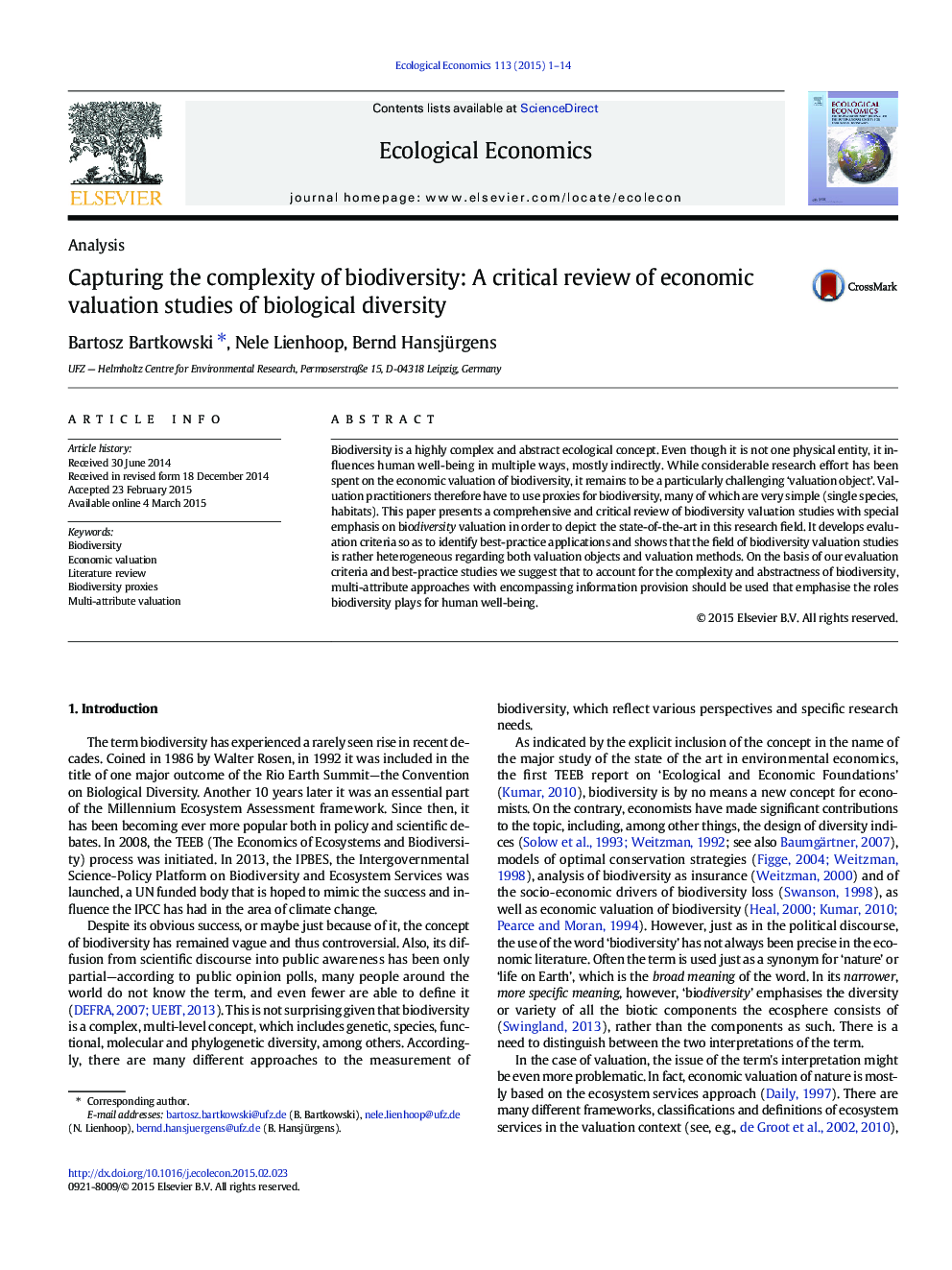| Article ID | Journal | Published Year | Pages | File Type |
|---|---|---|---|---|
| 5049387 | Ecological Economics | 2015 | 14 Pages |
â¢Many proxies used in economic valuation fail to grasp the diversity aspect of biodiversity.â¢Most studies use single-attribute proxies, which do not reflect the multi-dimensional complexity of biodiversity.â¢Multi-attribute proxies are better suited to account for biodiversity, but they are at the minority.â¢The emphasis on biodiversity roles with respect to human well-being should be imperative.â¢Provision of encompassing information, e.g., via deliberative approaches, is crucial.
Biodiversity is a highly complex and abstract ecological concept. Even though it is not one physical entity, it influences human well-being in multiple ways, mostly indirectly. While considerable research effort has been spent on the economic valuation of biodiversity, it remains to be a particularly challenging 'valuation object'. Valuation practitioners therefore have to use proxies for biodiversity, many of which are very simple (single species, habitats). This paper presents a comprehensive and critical review of biodiversity valuation studies with special emphasis on biodiversity valuation in order to depict the state-of-the-art in this research field. It develops evaluation criteria so as to identify best-practice applications and shows that the field of biodiversity valuation studies is rather heterogeneous regarding both valuation objects and valuation methods. On the basis of our evaluation criteria and best-practice studies we suggest that to account for the complexity and abstractness of biodiversity, multi-attribute approaches with encompassing information provision should be used that emphasise the roles biodiversity plays for human well-being.
